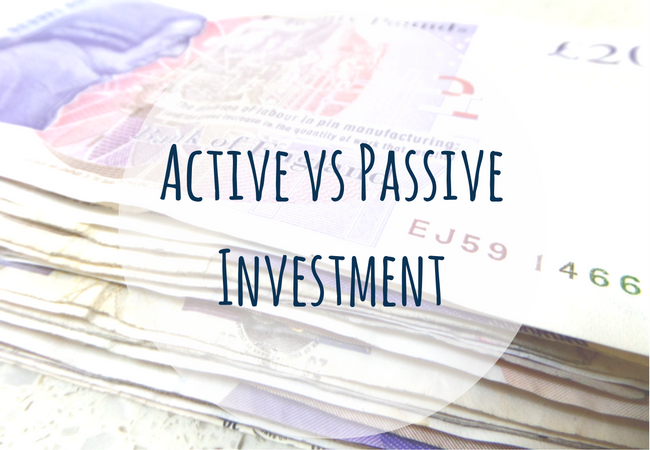ACTIVE OR PASSIVE INVESTMENT? HERE ARE THEIR DIFFERENCES…
Active investments:
- If a fund is actively managed it will be run by a fund manager or investment team. These professional managers are responsible for all of the fund’s investment decisions, including when to buy or sell assets
- Active fund managers aim to deliver a superior return to the market. Through extensive research and analysis into markets, sectors and specific companies, active fund managers assess their prospects before making a decision whether to invest or not
- An actively managed fund can offer the potential for higher returns than a market provides if the manager makes the right decisions. This tactical management means when a particular sector looks attractive, or a certain region starts to suffer, the fund manager can move money accordingly to access this growth or avoid potential losses. People pay a premium for active management.
Passive investments:
- Passive funds tend to track or replicate a market or index and include tracker funds or exchange traded funds (ETFs)
- The fund management fees tend to be far less in comparison with their actively managed counterparts
- These types of funds are often run by a computer and select all of the assets in a specific market, to provide a return that reflects the performance of that market.
If you’d like investment advice from a financial adviser, please get in contact to arrange a free initial assessment with Paul Clifford. As well as investment advice, we offer other financial advice including mortgage advice, equity release advice and pension advice.
Clifford Osborne is a member of the Equity Release Council, a body established to promote safe equity release products and protect consumers.
Our offices are based in Eastbourne, although our clients come from across East Sussex including Lewes, Brighton, Tunbridge Wells, Uckfield, Heathfield. Bexhill, Hastings and further afield.






